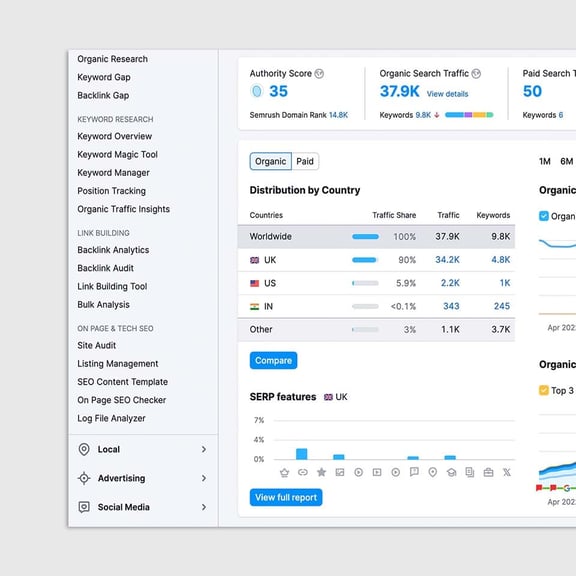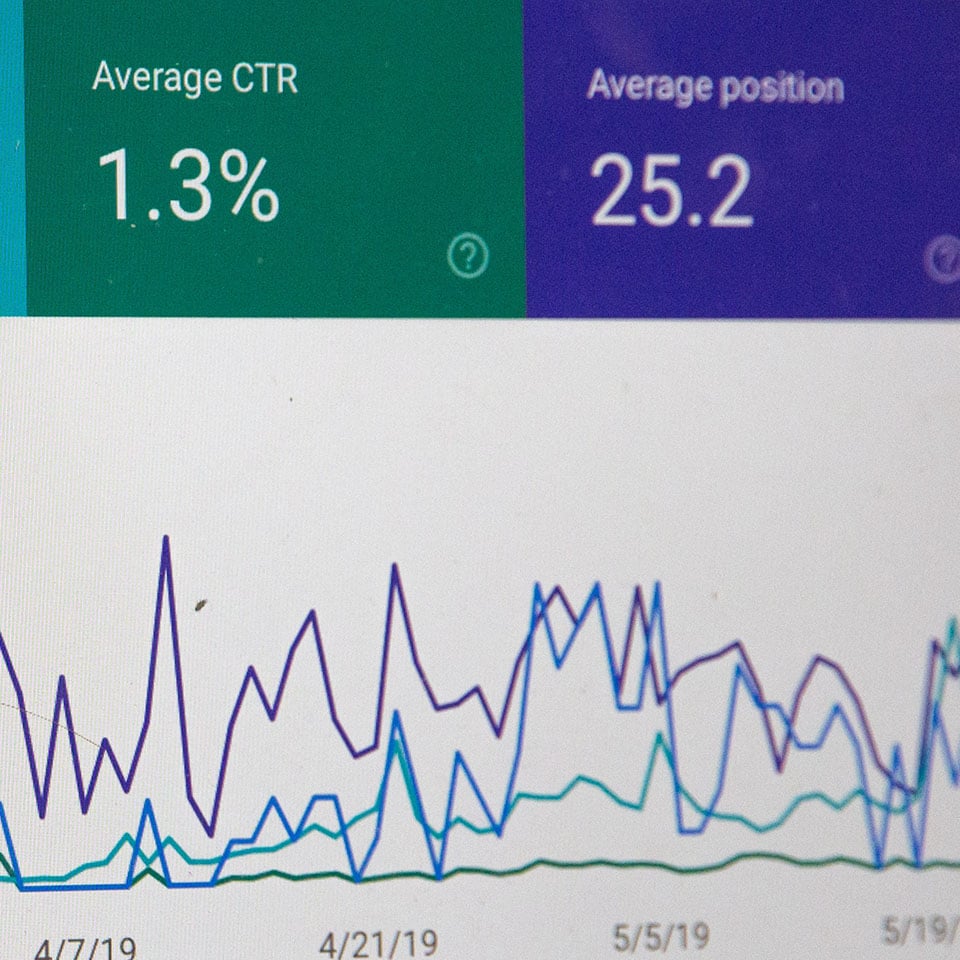B2B Content Marketing Services For Tech & Engineering Companies
If your website doesn't have the content your customers are searching for, you're missing out. We will fix it.
Your ideal customers use Google™ when researching solutions to their business challenges. If they don't find you, they'll see your competition, but the right content marketing strategy will fix that.
B2B content marketing is a mature and effective way of helping your business grow. Just as you use Google to find solutions to your business challenges, your potential customers are doing the same.
If you're not visible in search engines, content marketing is the answer, and we have a track record for delivering results.

Working with Red Evolution on this project has been a delight. Thanks for all your efforts and responsive service!

OEG


Some Of The Fantastic Organisations That We Work With



Why B2B Content Marketing Is So Effective
Compared to traditional marketing tactics, content marketing is 62% cheaper and roughly three times as effective (source: Demand Metric).
Fundamentally, content marketing is a strategic endeavour focused on creating valuable, useful, and educational content. Once it's picked up by search engines and served up in search results, it can drive profitable customer action, such as giving you a call or filling in a web form.
We generate most of our business using content marketing, and we provide b2b content marketing services to tech and engineering businesses in the UK, Europe, USA and Australia.
If you're a tech or engineering business and need to create a website that attracts and engages potential customers, we can help.




How Do Businesses Get Visitors From Google Search?
Google’s in the business of answering people’s questions. They know that people will keep using their search engine if it helps them solve their problems, which is why Alphabet (Google’s parent company) spends about £25 billion on improving their search engine every year (source: Statista).
And you know what? It must be working because Google now processes approximately 5.4 billion questions every day (source: HubSpot). Now, it goes without saying that most of those questions will be completely unrelated to your business, but a good chunk will pertain to the product or service that you’re selling.
Irrespective of whether someone’s buying legal services, a company car or a heat-proof pressure vessel for their chemical plant, they’ll always have questions that need to be answered.
Content marketing is about making sure that you’ve produced content that answers those questions – and got it ranking in Google to ensure that prospective customers stumble across your business when they’re at their most receptive.
Assuming that the content is informative and easy to read, it’ll leave a good impression and there’s a very good chance that you’ll go on to win their business.
Of course this oversimplifies the (arduous but rewarding) process of working out what people are searching for and producing genuinely useful content that stands out in an increasingly crowded space but this stuff isn’t rocket science: If you write helpful content and get it in front of the people that matter, your business will grow as a result.


What's The Process?
B2B content marketing isn’t about churning out hundreds of self-indulgent articles – or writing puff pieces that do nothing to move your business forwards. In all honesty, it’s not even about ‘telling your business's story’ or positioning your brand as thought leaders.
If you distil it down, B2B content marketing is actually about creating carefully-targeted content that answers genuine questions, and provides information that’ll help people move towards a purchasing decision.
After two decades of hard graft, we’ve come up with a pretty effective process that enables us to create killer content at scale. This process has five steps:
- Identify your ideal customer using customer data and a blend of 3rd party tools to find out who you really need to engage. You’ve heard of the 80/20 rule? Well, we’ll help you find the 20% of prospective clients primed to move your bottom line
- Identify their problems using keyword research tools to find out what they’re asking Google, and work out how you can help them move through the various stages of the buyer journey.
- Come up with a content strategy that prioritises a good mix of low-hanging fruit and the sort of complex, hard-to-answer questions that’ll drive new business for years to come. This strategy is the bedrock of your content campaign.
- Generating exceptional content with the help of our in-house team of marketing experts, who delight in finding new ways to engage web visitors with insightful and informative content that’s designed to solve their problems.
- Measure, rinse and repeat learning what works and feeding those insights back into your content strategy so that we’re always moving forward – and generating content that has a measurable impact on your bottom line.
Your B2B Content Marketing Questions Answered
This approach is industry-agnostic and it always generates results. Yes, it’s hard work that takes time to pay off, but it’s based on sound principles that will stand the test of time – leaving you with a wealth of high-performing content that drives a steady stream of prospective clients to your website.

Am I Just Giving The Crown Jewels Away?
It’s natural to worry that publishing detailed, informative and authoritative web content will somehow devalue your paid offering – or decrease the likelihood that people will reach out and contact you directly. You’re spoon-feeding people your hard-won expertise, when every instinct is screaming at you to charge for your knowledge.
But numerous studies have shown that the reputational boost you’ll enjoy far outweighs any risk (source: Forbes). Time and time again, experts have shown that publishing valuable content builds trust and helps to establish your brand without diluting the value of your insights.
It’s also worth remembering that content marketing is a brand building exercise. You’re going to be putting your name in front of people who’ve never heard of your business before. It’s important to make sure that you make a good first impression and position yourselves as knowledgeable experts who are willing to freely share important information.
As long as your B2B content marketing campaign doesn’t actually tell people how you do what you do, there’s no real risk to your bottom line.

What Type Of Content Do I Need?
You might have heard that long-form content is best for B2B brands – or that bite-sized ‘listicles’ significantly outperform traditional blog posts but these marketing truisms are rarely based in fact.
The truth is that there’s really no way of telling what type of content will perform well until we’ve conducted a thorough analysis of your vertical.
At the start of any B2B content marketing engagement, we spend a significant amount of time mapping out your target audience’s preferences, looking at competitor copy and analysing search results to make sure we’ve got a sound understanding of what works in your niche.
We’ll then use this information to create a detailed content calendar, generally featuring a healthy mix of
- Blog posts and articles
- Case studies
- New or re-optimised landing pages
- Checklists and cheat sheets
- Ebooks and whitepapers
- Guides and instructionals
- Podcasts and explainer videos
Research also shows that up to 72% of modern web users prefer to engage with audiovisual content like explainer videos or podcasts (source: INVIDEO). So we’ve spent the last two years building out our capabilities in these areas, and now offer a fully-fledged video production and podcast creation services to B2B content marketing clients all over the globe.
By producing content that’s purpose-built to engage and convert your target audience, we can help you grow a dedicated following, and cement your reputation as smart people with bags of useful experience.

Do I Have To Keep Doing It?
Consistency is key. While it can be tempting to rattle out a few pages of top-notch content and call it a day, the only way to persuade Google that your site is authoritative, trustworthy and knowledgeable is to - wait for it - keep writing killer content that targets relevant keywords and answers your target audience's burning questions.
Studies show that 78% of brands who make a success of their B2B content marketing efforts have invested in some sort of long-term strategy (source: SEMRush), and a paper published by researchers from the Munich University Of Applied Sciences suggests that commiting to regular content updates is key to increasing the effectiveness of your content campaigns (source: PLOS ONE).
There’s a simple and straightforward reason for this: Simply put, it takes time for content marketing campaigns to generate momentum.
Your first, second and third blog posts are unlikely to generate much buzz but the more you post, the more you grow your brand. By the time you’re pushing your 53rd blog post, there’s a very good chance that key members of your target audience will have noticed your activity, bookmarked your blog and started sharing your content.
Research published by Search Engine Journal also suggests that regular updates teach Google to crawl your site more frequently, decreasing the lag time between publishing a piece of content and seeing it rank for relevant search terms (source: SEJ). Over time, the effect can snowball; allowing you to scale your digital footprint at breakneck pace.
But that’s not to say that you should start churning out low-value content to meet some arbitrary metric around post frequency. Quality is still the number one priority when it comes to building a brand and generating enquiries, which is why we always focus on creating content that establishes your brand as subject matter experts with a wealth of useful domain knowledge.

How Will I Know If It's Working?
It might take a while for your B2B content marketing campaign to start delivering results (6-9 months, give or take). But when things do kick into gear, it’ll be very obvious that your efforts have paid off.
The first thing that you’ll see is a spike in organic impressions. This is what we call a leading indicator and it generally shows that your website has started ranking for a broader swathe of search terms – and popping up in front of the people actively searching for the topics you’ve been writing about.
After this, you should notice a corresponding uptick in the number of organic visitors hitting your site. If you drill down using an analytics tool like Search Console, GA4 or Clicky, you should also see that these new visitors are finding your site via the search terms you’re targeting with your B2B content marketing campaign.
But you don’t invest in content marketing because you want to see more visitors. Leads and enquiries are what we really care about, and it’s not until we see a significant uptick in these key metrics that we’ll be able to say that our content marketing efforts have been a success.
9 times out of 10, a well-planned content marketing campaign that
- focuses on the right keywords
- Caters to the need of your target audience
- Provides plenty of measurable value
Will deliver a steady stream of leads and enquiries. But if your targeting's off or you’ve missed the mark slightly, it’s just a case of revisiting your initial strategy and adjusting using the data you’ve gathered from your ‘failed’ campaign.
Like all marketing efforts, B2B content marketing is an iterative process that can be continually optimised as you gather data, so nothing’s wasted and you’re always learning something valuable.

Can I Just Do It Myself?
Of course you can. Truth be told, anybody could run their own B2B content marketing campaign and - as a business owner, CMO or marketing manager - you’re probably in a relatively good position to make a success of it too.
The issue here is that running a successful content marketing campaign takes a lot of time and effort. Gathering keyword data, analysing it for intent, profiling your audience, writing content, editing content, publishing content and measuring results takes months of hard work.
It’s also a job for multiple people. We find that campaigns tend to be much more effective when you have a diverse group of marketing experts pooling knowledge and insights, brainstorming ideas or refining each other’s plans.
Outsourcing to a reputable B2B content marketing agency is simply more efficient. You’ll be able to leverage the full capabilities of a well-oiled marketing team at (or around) the same cost of one staff-member’s full-time wage, which means that you’ll save money and still get the fantastic content you need to generate enquiries and grow your business.

Why Red Evolution?
Small but mighty, we’re a team of 11 digital specialists with a proven ability to plan and execute effective B2B content marketing campaigns. We have an in-house team of designers and strategists, copywriters, developers and videographers – allowing us to create killer content in a variety of formats.
We also excell at tackling technical subjects. Where most content and marketing agencies would shy away from learning - and writing - about irrigation management, oil well integrity or weber carburetors, we actively embrace the opportunity to get stuck into demanding subjects that require.
We’re also expert collaborators. We recognise that your team has the advanced domain knowledge needed to cement your company’s reputation as the go-to experts, but we also know that actually extracting and using this knowledge to fashion killer web content can be an uphill battle.
To make things easier, we’ve developed a field-proven process that involves extensive planning, quick-fire interviews with your internal teams and a well-honed editing process that’s designed to make the content writing process as painless as possible – for everyone involved.
In time, you’ll end up thinking of us as a natural extension of your in-house team; equally dedicated to making sure that your business grows online.
Would You Like To Discuss Your Requirements?
You'll find our plain English approach refreshing, so please use this form to tell us about your project, and we'll contact you to arrange a convenient time to discuss it.
If you'd prefer to book a meeting right now, at a time that suits you, you can do that here.
We won't share your information or use it for any purpose other than to contact you to discuss your requirements.